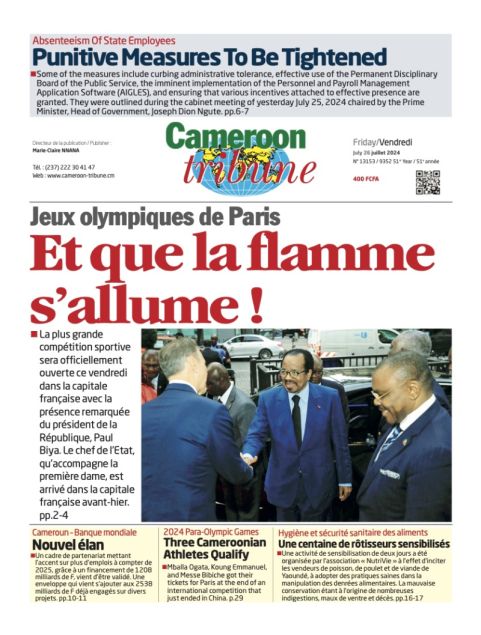Revisiting Responsibility In Media Reporting
- Par Richard Kometa
- 09 mai 2022 12:17
- 0 Likes
World Press Freedom day came and went on 3 May, 2022 with stakeholders evaluating how far they have gone in Cameroon in the past 12 months. Seen from this perspective, it may not be preposterous to say that nothing has changed. It was a retrospective look of media performance in the country which invariably reviews the media set up in comparison with global practices on the occasion of the 31st World Press Freedom Day (WPFD). This is because press freedom affects people everywhere even if the impact is the same across the board.
Of course, the issues that concern the press might be similar in all countries, but areas where media practitioners tend to place emphasis do differ according to context and the daily realities. Observing the WPFD this year on the theme: “Journalism Under Digital Siege” as conceived by UNESCO brings to mind the challenges Information Technology has imposed on the exercise of the profession. Yet, the reality is that in Cameroon it is not only digital obstacles that pose problems to the quest for a free press. As one of the cornerstones of a democratic society, the media has evidently fallen under the spell of a democratisation process that is thriving within a difficult economic context.
What comes to mind here is the fact that technological evolutions have diametrically transformed the media landscape and created room for everybody to report facts and fiction in almost the same way. Citizen journalism, as the practice of individual involvement in daily news reporting has come to be qualified, has not however succeeded in erasing the traditional media structures and their relevance. Rather, it has simply imposed a more challenging work environment and ethics for professionals who want to exist.
With a computer and internet connection, or even an android telephone, just any person can upload information onto the public space with the potential of being viewed, commented and liked by millions within minutes. Be it facts or fiction the hurdle at that level is on the consumer to sieve such information and therein lies the uphill task for media practitioners. They have to fight hard and make the difference in terms of information, education and entertainment as the profession demand.
Within such a situation, the decision about what to publish or broadcast in the midst of survivalist realities like in Cameroon invariably open the floodgates for further complications. Many who try to look at the shortfall in media practice in the country readily point accusing fingers at either the limitations of the professionals, stingy owners of media structures or certainly the inability of the government to provide a conducive environment for the press.
Conscious of all the hitches, the Minister of Communication and Government Spokesperson, Rene Emmanuel Sadi, took advantage of the WPFD to insist on professionalism and responsibility as watch-words for media practitioners. In simple terms, the Communication boss pointed out that not everything that a reporter hears or knows must be said. This means that there is need for selective reporting. It equally means reporters should know why they are leaving out one fact over the other.
Responsible filtering of information has to be guided by the ability of the reporter not only to understand the intricacies involved in the issues, but also to overcome daily survivalist setbacks. Many complain of poor pay, no social security, and generalised harsh working conditions either imposed by their bosses or technological advances. While critics think that none of such hurdles should justify under performance, the fact remains that there are people who take advantage of such loopholes to derail media practitioners from effectively doing their job. Such persons who lay in ambush to drag reporters down the wrong road generally do so with gusto until when they themselves are victims of slander and misinformation.
But beyond all else, the underlining truth is that media practitioners in the country have defied all odds to demonstrate a sense of responsibility and belonging. Major national and international events the country faced in the past years received adequate cover from the press to the satisfaction of many across the country. Even when devastating setbacks like the global Covid-19 pandemic set in to create a rash distortion of daily life and imposing more stringent economic choices on businesses, the media practitioners ...
Cet article complet est réservé aux abonnés
Déjà abonné ? Identifiez-vous >
Accédez en illimité à Cameroon Tribune Digital à partir de 26250 FCFA
Je M'abonne1 minute suffit pour vous abonner à Cameroon Tribune Digital !
- Votre numéro spécial cameroon-tribune en version numérique
- Des encarts
- Des appels d'offres exclusives
- D'avant-première (accès 24h avant la publication)
- Des éditions consultables sur tous supports (smartphone, tablettes, PC)
Reactions
De la meme catégorie
Intelligence artificielle : saisir les opportunités, contenir les menaces
- 22 juil. 2024 14:04
- 0 likes












Commentaires